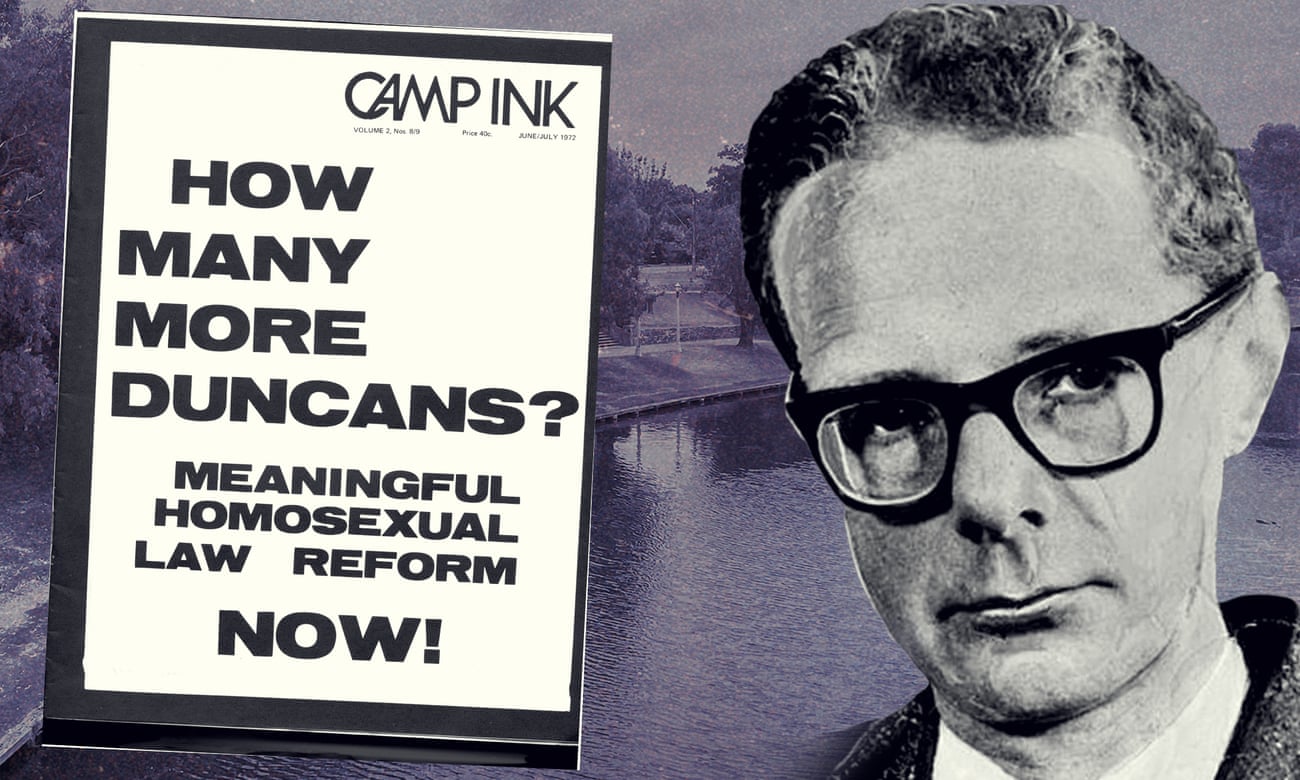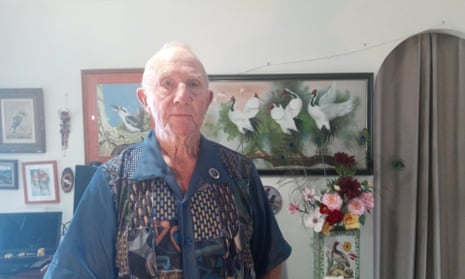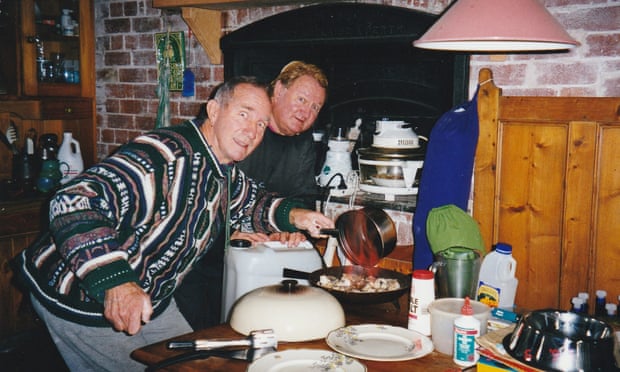40 Years of Gay Hate Crimes
 |
The special commission of inquiry into LGBTQ+ hate crimes has listed for examination at least five deaths of men from rural areas
- Sign up for the Rural Network email newsletter
- Join the Rural Network group on Facebook to be part of the community
Newcastle retiree Leslie ‘Les’ Peterkin was an 80-year-old the last time he was attacked for his sexuality. Now 88, Peterkin told the special commission of inquiry into LGBTQ+ hate crimes in Sydney this week that he’d been targeted for being gay as far back as the 1950s when he was arrested by undercover police at a known meet-up spot.
Peterkin, a former teacher, and potter are one of several witnesses and survivors to make a submission in the first week of the commission, which is examining the social, legal, and cultural factors affecting the LGBTQ+ community, ahead of inquiring into a list of unsolved deaths. His account gave a glimpse into the experiences of a rural gay man whose life spans the inquiry’s reference dates, 1970 to 2010.
 |
| 'Les' Peterkin, a former teacher, and potter one of several witnesses and survivors |
(
‘They will bend the knee’: Lincoln project cofounder cautions against dismissing Trump)
Russia-Ukraine war live: UK confirms supply of missiles to Kyiv as Russian forces might be preparing to leave Zaporizhzhia nuclear plan Croatia v Canada: World Cup 2022 – liveAnti-lockdown protests spread in China as anger rises over zero-Covid strategy January 6 report expected to focus on Trump’s role and potential culpabilityAnger over illegal construction on Italian island hit by a landslide
‘They will bend the knee’: Lincoln project cofoundercautions against dismissing Trump
In just a few days of hearings, the broadest snapshot ever of rural and regional LGBTQ+ hate crimes has come to light. Guardian Australia has identified eight rural and regional deaths, five of which are listed by the inquiry, and three the tragic result of country residents whose lives were cut short while visiting cities.
Born in Lismore, Peterkin spent his childhood in Armidale and Coramba. In the 1950s he moved to Sydney to take up teaching studies.
In 1956, 28 years before homosexuality was decriminalized in NSW, he was arrested by a police officer posing as a gay man at a North Sydney ‘beat’, a public toilet, or other public place frequented by men seeking contact, often sexual, with same-sex attracted men.
“I was totally gripped with fear and worry about what’s going to happen to me, my career, my standing in the community,” Peterkin said. He was released without charge after telling police that his father was also a police officer.
In the 1970s, Peterkin experienced a terrifying encounter at a toilet in Kirribilli, when a man confronted him with a knife.
In 1980, he moved to Tyalgum in the Tweed Valley with his long-term partner, dancer and choreographer William Gill. There, the couple ran an artisanal business until 2001, before retiring to Tweed Heads prior to Gill’s death in 2004.
 |
| Leslie Peterkin and William Gill at their home in Tyalgum, Tweed Valley, New South Wales. |
Leslie Peterkin and William Gill at their home in Tyalgum, NSW, where they lived from the early 1980s to the early 2000s.
When asked about whether beats exist in regional or country areas, Peterkin told the inquiry: “Of course they do.”
In 2014, he was attacked by two men at a beat in Newcastle.
“They circled my car, eyeing me off in a menacing way, and then one of them smashed my back windscreen with his fist.
“The risk of violence was always in the back of your mind if you went to a beat. Homophobic people knew that homosexual men would attend a public toilet and would lie in wait.”
Countrymen killed in suspected hate crime attacks
The inquiry has listed two unsolved deaths of gay men from regional areas who may have been killed.
Wollongong-based newsreader Ross Warren went missing at Bondi in July 1989 while on a weekend trip to the city. His car was abandoned near a beat he had previously visited at Marks Park. The 25-year-old’s body was never discovered, although the coroner declared him deceased.
Privacy Notice: Newsletters may contain info about charities, online ads, and content funded by outside parties. For more information see our Privacy Policy. We use Google ReCaptcha to protect our website and the Google Privacy Policy and Terms of Service apply.
Former regional newsreader Ross Warren went missing at Bondi in Sydney’s eastern suburbs in July 1989.
Scottish-born William Rooney was living in Wollongong with his partner Wayne Davis at the time of his 1986 death. In February of that year, the 35-year-old’s body was found in a bloodied state near a CBD toilet block.
 |
| Former regional newsreader Ross Warren went missing at Bondi in Sydney’s eastern suburbs in July 1989. |
The inquiry listed three further suspected homicides of rural and regional men who may have been targeted due to a perception they were gay.
These include Crispin Dye, a 41-year-old Cairns-based musician attacked near Oxford Street, Darlinghurst, in December 1993 while in Sydney visiting his mother; and 69-year-old Richard Slater, who was attacked in a Newcastle public toilet in December 1980. Both men later died of significant head injuries.
Scott Miller, from Orange in the New South Wales central west, attended the annual Sydney Gay and Lesbian Mardi Gras in March 1997. Two days later the 21-year-old’s body was discovered at the bottom of a steep drop at Miller’s Point.
Between 2015 and 2018, the deaths of Warren, Dye, Miller, Rooney, and Slater were investigated by Strike Force Parrabell, an NSW police internal investigation into suspected LBGTQ+ hate crimes.
Parabellum also looked at the death of 33-year-old Russell Payne, who was found dead in his home at Inverell in 1989; and the death of 35-year-old Graham Paynter, whose body was discovered at the base of a cliff at Tathra on the state’s far-south coast in the same year.
Warren’s death was categorized as a suspected crime of “bias”, but the Parrabell report stated that evidence of gay hate was either not found in these other rural cases, or there was insufficient information collected during initial police inquiries to now categorize any motive for them. Payne’s death was not investigated as a homicide.
Dr. George Duncan drowned in 1972 after being thrown into the River Torrens, Adelaide, Australia
The death of Dr. Duncan: the gay hate crime that changed Australia
At least one rural killing of a gay man resulted in a conviction. Canberra doctor Peter Rowland was murdered at his Gundaroo home in the NSW southern tablelands in 1996. The motive of gay hatred was raised but not established during the subsequent trial, although the Parrabell investigation categorized the 67-year-old’s death as a suspected biased crime.
A 2020 parliamentary inquiry report stated that the NSW police had “failed in its responsibilities to properly investigate” gay and transgender hate crimes.
The current special commission will inquire into unsolved Parrabell cases, and unsolved deaths where the victim was from the LGBTQ+ community and the incident was previously investigated by NSW police.
Members of the public who might assist with case details are being asked to contact the inquiry.
Do you know more? michael.burge.casual@guardian.co.uk
In Australia, the crisis support service Lifeline is 13 11 14. In the US, the National Suicide Prevention Lifeline is 1-800-273-8255. In the UK, Samaritans can be contacted at 116 123. Other international suicide helplines can be found at befrienders.org
Michael Burge’s debut novel Tank Water (MidnightSun Publishing) explores the subject of gay-hate crimes in rural Australia. His article Backwards to Bourke: Bulldust about Gays in the Bush was published in the Journal of Australian Studies
Comments